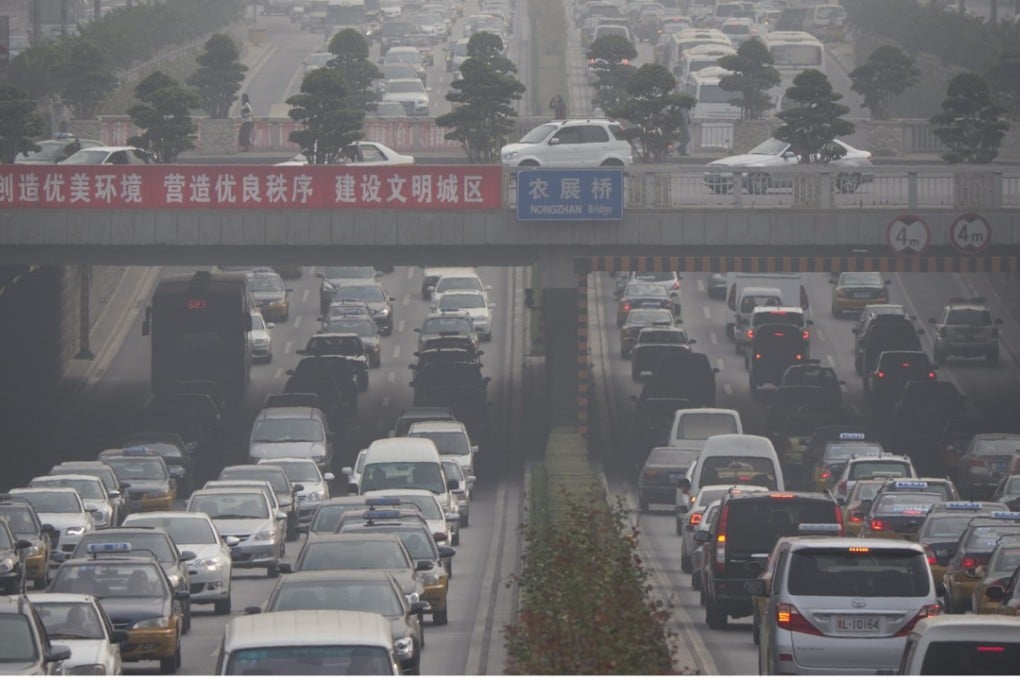Beijing’s air pollution is changing, new research shows
- Nitrates now the main component of the potentially harmful PM2.5 particles, report says

The composition of air pollution in Beijing is changing, according to the latest research into the subject.
Potentially harmful pollutants, known as nitrates, emitted by cars and factories are now the main component of the tiny atmospheric particulate matter known as PM2.5 in some parts of the Chinese capital, Beijing Youth Daily reported on Sunday, citing an unnamed official from the city’s environment watchdog.
Readings taken on Saturday evening in Fangshan and Mentougou districts found that nitrates had overtaken sulphates and black carbon as the main component of PM2.5, the report said.
It said also that the PM2.5 level in the city had risen to 226 micrograms per cubic metre, while air quality in the wider Beijing-Tianjin-Hebei region had also deteriorated.

The reason for the reduction in sulphates and black carbon might be due to the government’s efforts to close factories and ban the use of coal-fired residential heating systems, local media reported.
